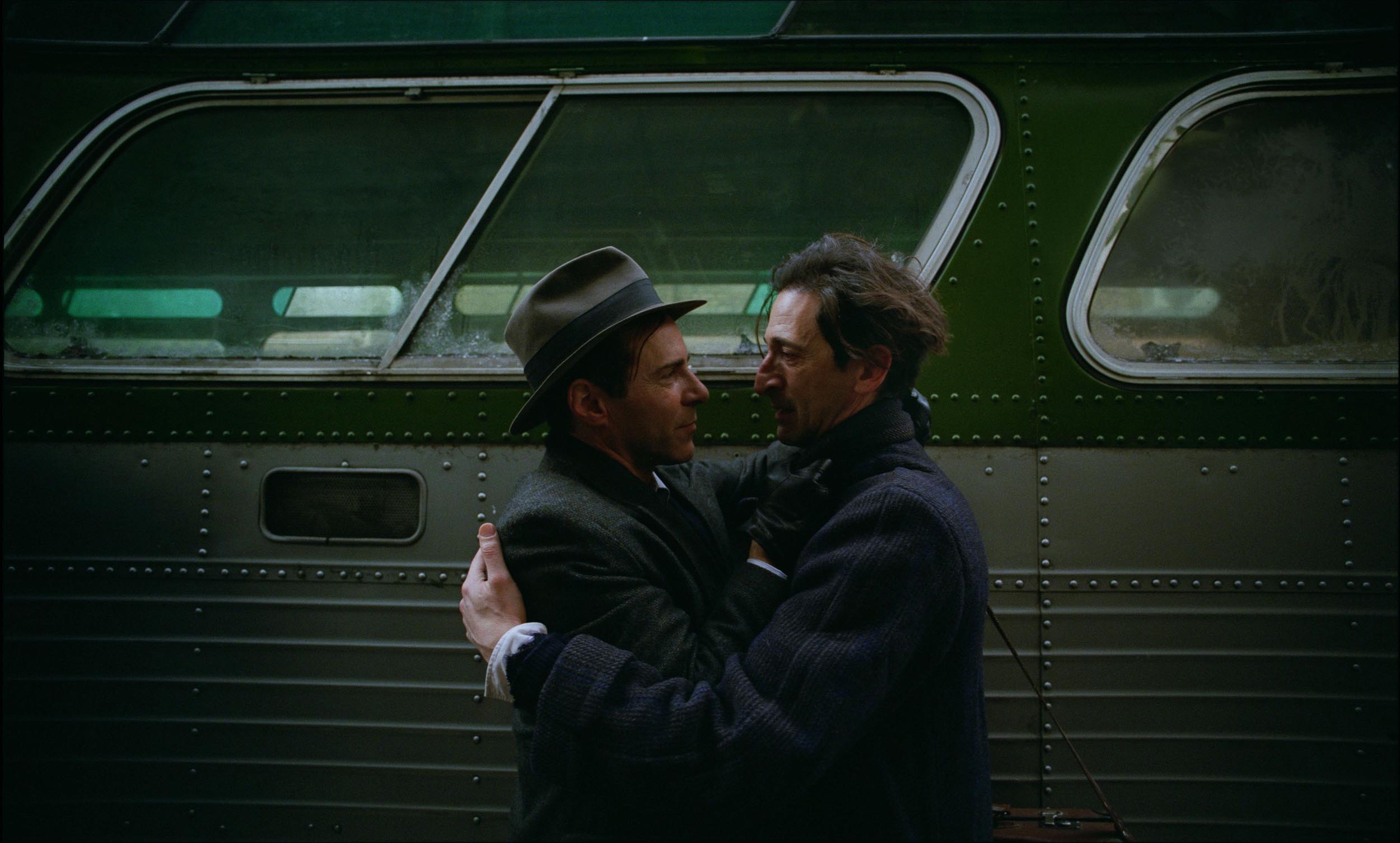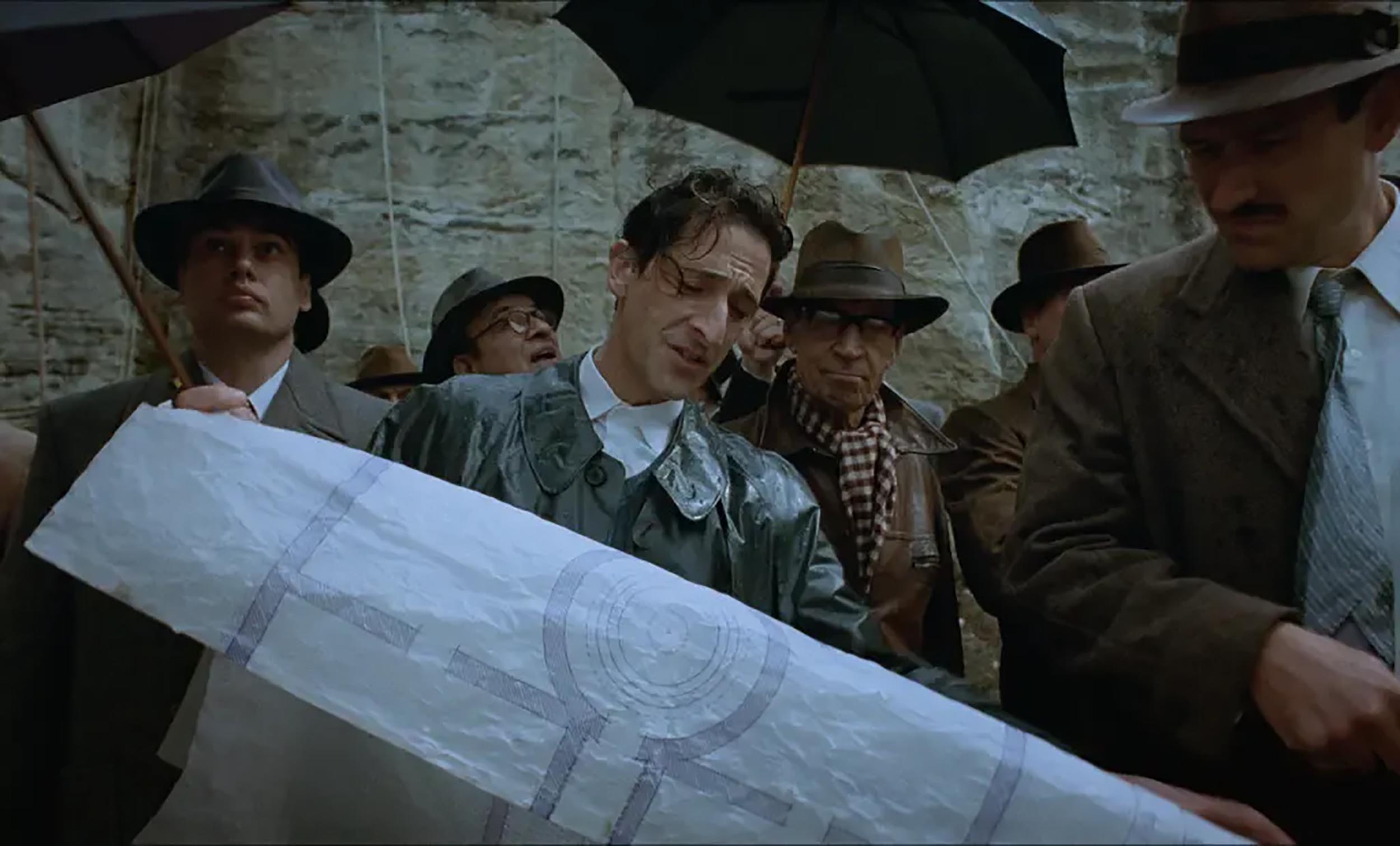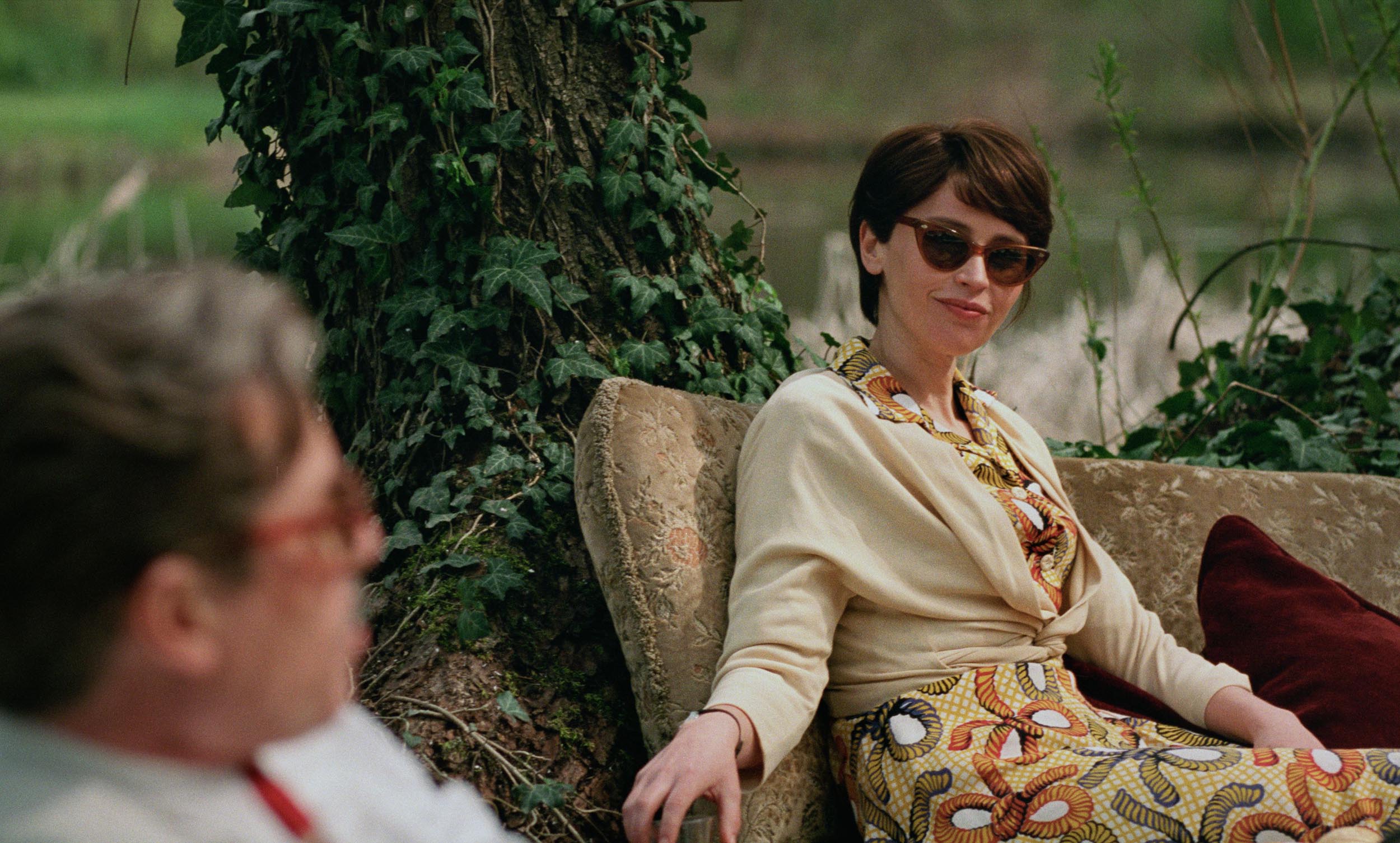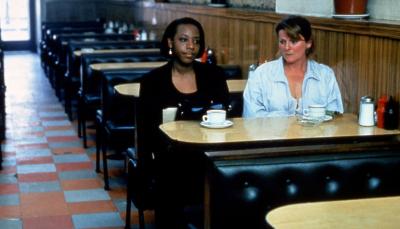Instant Classic ‘The Brutalist’ Lands A Gut Punch
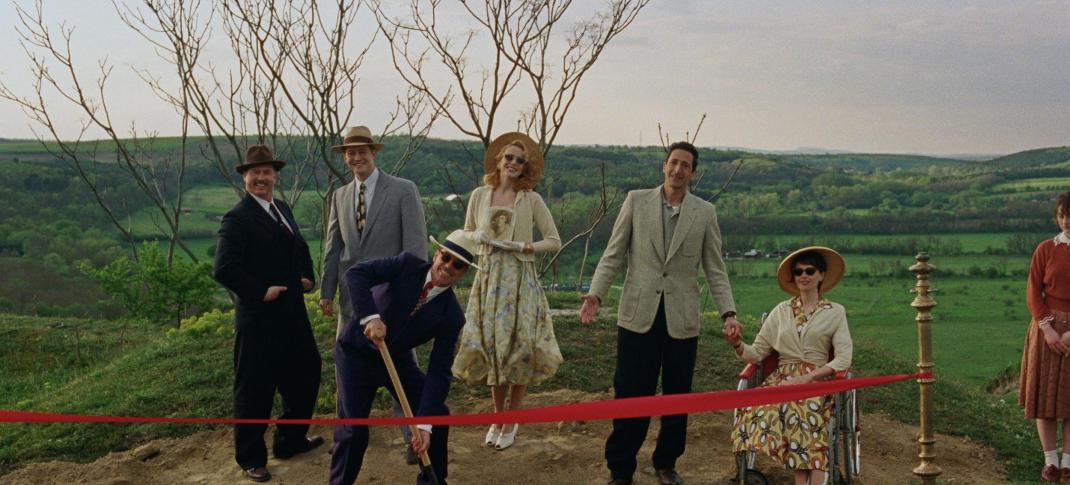
The cast of 'The Brutalist'
A24
In our current blockbuster era of CG-forward theatrical content churn from the major studios, a common lament from those who love movies is that old chestnut: “They sure don’t make ’em like they used to.” That “used to” typically reference films in the mode of John Cassavetes (A Woman Under the Influence), Robert Altman (Nashville), or Sydney Pollack (They Shoot Horses, Don’t They?), where the stories are intimate, and the dialogue and performance take primacy on screen. If you have been feeling the dearth of that kind of filmmaking, then The Brutalist is the exhilarating answer to that lament.
Director Brady Corbet’s sprawling epic, co-written with Mona Fastvold, is so astute in capturing the aesthetics and techniques of a bygone time that it feels like a film I would have no problem believing was discovered in a 1950s time capsule rather than made today. Shot on VistaVision (35mm scanned up for 70mm projection) and broken into two acts (with a 15-minute intermission) and an epilogue, The Brutalist is a lovingly created throwback to old-school cinema. It’s breathtaking in its grounded ambition of bringing to life the haunting intimacy of Hungarian-Jewish architect László Tóth’s (Adrien Brody) immigrant experience.
A story encompassing three decades, Corbert presents the United States-based portion of the life and career of fictional architect László Tóth. In “Part 1: The Enigma of Arrival,” the narrative is framed from Tóth’s point of view, opening with his harrowing post-concentration camp entry into America through Ellis Island. Corbet’s provocative use of sound design, camera use, and epistolary narration throws us right into Tóth’s existence in the now of 1947 and his chaotic introduction to this nation.
We then follow him through his first tentative steps at starting anew, where everything around him is foreign and seemingly meant to make him feel as small as possible. Gaunt and injured from his experiences in Europe, Brody makes it to Philadelphia, where he’s almost too exuberantly welcomed by his fellow immigrant cousin Attila (Alessandro Nivola) and his gentile American wife, Audrey (Emma Laird). It’s arranged that Tóth’s will make furniture for their suburban storefront. That immediately establishes a power structure where Tóth’s gratitude is implied as expected at all times for their generosity and eventually devolves into other levels of their tense existence together.
Corbet brilliantly charts Tóth’s tentative hold on this country through his modest, years-long pursuit of any employment that will pay enough for the immigration of his beloved wife Erzsébet (Felicity Jones) and their niece Zsófia (Raffey Cassidy), who are still stuck in Budapest. Brody embodies Tóth with an aching vulnerability that permeates his character’s physical and emotional countenance. He’s a diminished spirit in this world, always standing just apart from his new country and its citizens as a keen observer who doesn’t quite fit into this country’s social strata.
But when he’s working, there’s a singular dedication to his vision that blooms into astonishing brilliance. It’s fully evoked when Attila is hired by Harry Lee Van Buren (Joe Alwyn), the son of wealthy Pennsylvania industrialist Harrison Lee Van Buren (Guy Pearce), to remodel his father’s home office as a surprise birthday present. In that space, Tóth comes alive through his true vocation as an architect specializing in minimalist creations inspired by his Bauhaus training in Europe. The final product is breathtaking in its form and function which only adds to the shock as it elicits a man-baby-level tantrum from Harrison the first time he lays eyes on it.
Though he’s mercurial and entitled, Harrison isn’t stupid. After summarily firing the cousins without pay, the adoring public reception of his revealed office moves him to follow up on Tóth’s background. Harrison eventually tracks him down, where he apologizes for his outburst and acts a bit starstruck by the level of talent he’s discovered under his own roof. Their reconnection ignites an almost symbiotic relationship between the men that will tangle into their professional and personal lives.
It’s only in “Part 2: The Hard Core of Beauty” that Jones enters the film, where her presence changes the emotional and transactional dynamic Harrison has carefully constructed with her husband. Van Buren’s tethered show pony suddenly has familial distractions and a renewed sense of autonomy, disrupting the entitled and possessive grip Harrison has taken for granted. Though wheelchair-bound and diminutive in stature, Erzsébet is an unexpectedly fierce and astute advocate for her husband, which will lay the groundwork for a willful battle for Tóth’s soul that will define the film’s second half.
Both Jones and Pierce give commanding and uniquely fiery performances. Where Pierce is more overt and showy in portraying Harrison’s capricious and malevolently petulant tendencies, Jones instead simmers to boiling when Erzsébet allows her carefully constructed public veneer to reveal her passion for László in the privacy of their bedroom or when coming to his public defense. Their characters are the great influences of Tóth’s life, so their incendiary supporting performances are integral to revealing the man behind the exceptional talent. Throughout, Brody beautifully modulates how Tóth manages both while protecting his character from the haunting memories and current inequities of his new country that are always nipping at his heels.
While the film’s actual runtime is about three hours and 20 minutes (sans intermission), I never felt that time as I was fully absorbed into the world of The Brutalist. Corbet and Fastvold’s script is purposeful and engrossing, aided by an exceptional edit by Dávid Jancsó’s and Daniel Blumberg’s intense score, which adds gravitas to both Tóth’s interior and exterior life. Every piece is so intricately constructed right under the audience’s eye that you’re beguiled into thinking this is a face-value story.
And then Corbet’s Epilogue lands like a gut punch.
The final section ties together the subtext of perception and intention of the lens cataloging Tóth’s life. Everything we think we’ve known or understood about Tóth’s choices, artistic expression, and suffering is reframed in an ending that knocked me out with a proverbial feather. I left the theater emotionally spent and profoundly changed by Corbet’s familial saga that simultaneously captures both the potential and the inherent flaws of our country, but those of humanity too.
The Brutalist is playing now in limited release in the U.S. and moves to wide release in early 2025.

